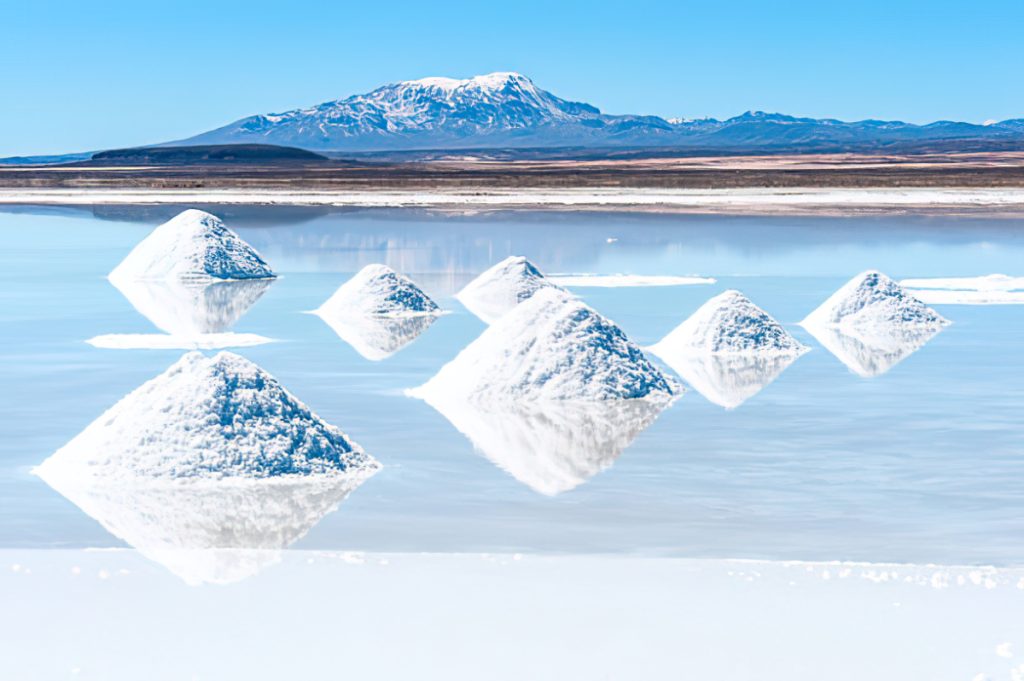Russia and China to fight for Bolivian lithium reserves

By Eugene Gerden
Russia and China will fight for lithium deposits in Bolivia, as global demand for the metal is growing rapidly due to the boom of the electric vehicles’ sector, according to recent statements made by experts within the mining sector and Russian media reports.
Bolivia has significant potential for lithium production; however, the development of its reserves is complicated by the lack of investment in exploration, duly needed to accurately determine the scope of the industry.
The UK Financial Times recently reported companies from Russia and China are leading the bidding for a lithium mining contract in Bolivia, being in the short list of applicants, which the government of Bolivia considers as potential partners for the development of deposits.
The list of these companies includes Xinjiang TBEA Group, Fusion Enertech, Brunp (subsidiary of the world’s largest manufacturer of automotive batteries CATL) together with the mining company China Molybdenum as well as CITIC Guoan Group together with the railway company China Railway International Group.
From Russia it is Uranium One Group, which is part of Rosatom’s Techsnabexport, while of the Western companies, Lilac Solutions, an American company supported by Bill Gates’ Breakthrough Energy Ventures.
According to the US Geological Survey, Bolivia has the world’s largest deposits of lithium. The potential winner will enter into a contract with the Bolivian state company Yacimientos de Litio Bolivianos (YLB) for the development of some strategic lithium fields in the country.
The specific parameters of the contract are still unknown. According to YLB President Carlos Ramos, the contract will be signed on the basis of “respect for the laws and maximum benefit for the Bolivian people.” Ramos refused to comment on the details of the agreement, citing the confidentiality of this information.
Most analysts believe that the development of Bolivian lithium reserves is important to meet the ever-growing global demand for the metal. As analysts have also added, as of now, the demand for the metal is now approximately equal to its supply, but in the medium term, in the case of further growth of the electric car industry, demand will exceed the current level of production. It is expected global lithium consumption from 2022 to 2030 should more than quadruple to 2.1 million tonnes, while the electric vehicle sector will account for about 75% of this volume.
Lithium prices have increased more than 10 times since the end of 2020 and will remain high in the medium term to ensure the necessary level of supply. Prices also grew in 2022, reaching $75,000-80,000 per tonne. According to analysts, there is a high possibility that they remain at a high level in 2023 due to lack of supply, however much will depend on the further growth dynamics of the global industry of electric cars.
In case of Russia, amid the ongoing militarization of the country, it experiences an acute need of lithium supplies as that will be important for the production of combat equipment and weapons.
As Viktor Kheyfets, professor at the Department of Theory and History of International Relations at the St. Petersburg University told in an interview with the Russian Vedomosti business paper, if YLB makes a choice in favour of a Russian company, Moscow will provide itself with uninterrupted supplies of lithium.
According to him, there are not so many lithium deposits in the world, and supplies from Argentina and Chile to Russia have stopped. While Chilean and Argentinean enterprises have not formally joined the anti-Russian sanctions, both countries are forced to take into account the interests of their Western shareholders, so the shipment of lithium to Russia from their territories will be seriously complicated.
Currently Russia-based Rosatom has extensive expertise in the mining industry, including in foreign markets, and Bolivia has the largest lithium reserves in the world, which, according to various sources, are estimated at more than 21 million tonnes. The country’s existing deposits are almost non-developed, while Australia, Chile and China produce about 88% of the world’s lithium, he explains.
Analysts believe much will depend on the ability of the future investors to accurately determine the extent of the Bolivian lithium industry. In the case of Russia, so far, its presence in the global lithium mining has been limited, which may create difficulties in the future.
Currently, Rosatom is also preparing for the development of domestic lithium projects. As part of this plan, the company recently reached an agreement with the Russian mining giant Norilsk Nickel to jointly mine lithium at the country’s largest Kolmozerskoye deposit in the Murmansk region.
Rosatom already has experience in cooperating with Bolivia, as the state corporation has a contract with the Bolivian government to create a centre for nuclear research and technology. In August 2022, the first facilities at the centre were put into trial operation: the production of radioisotopes for medicine and agriculture.
